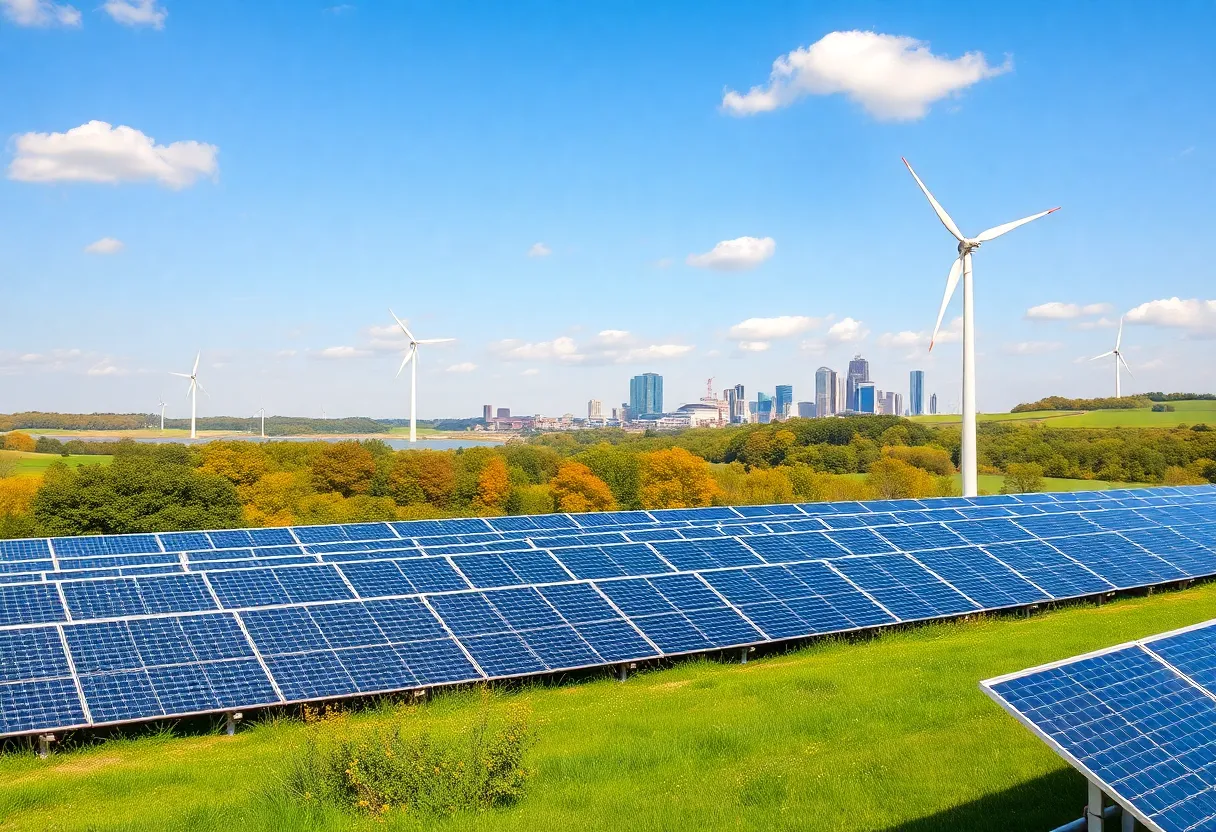Pennsylvania, August 28, 2025
News Summary
Recent GOP budget cuts have jeopardized over 100 clean energy projects in Pennsylvania, affecting solar, wind, and electric vehicle initiatives. Environmentalists and community leaders are alarmed by the potential long-term impacts on jobs and sustainability. Advocates stress the moral obligation to support clean energy, especially in the face of proposed changes to tax incentives. Governor Josh Shapiro aims to revitalize the sector, but the state currently ranks poorly in renewable energy growth. Urgent collaboration is needed to navigate these challenges and ensure a sustainable future.
Pennsylvania’s Clean Energy Initiatives Face Significant Threats Amid GOP Budget Cuts
The recent GOP megabill has introduced sweeping cuts to the federal budget, eliminating billions of dollars allocated for clean energy projects. This decision poses a serious threat to major clean energy sectors, including solar, wind, hydrogen power, electric vehicles, charging stations, and home energy efficiency. In Pennsylvania alone, over 100 planned clean energy projects have either been canceled or drastically reduced due to these cuts, sparking outrage among environmentalists and community leaders.
Organizations led by environmentalists, labor leaders, and faith figures have voiced their concerns regarding the enduring impact of these budget reductions, warning of potential hardships for future generations. Leaders from various faith backgrounds convened a panel titled “Thou Shalt Not Steal from Our Children’s Future” to discuss how collaboration can bolster efforts aimed at advancing environmental initiatives. This gathering highlighted the moral responsibility that communities share to protect the environment, reflecting similar ideals across different faith traditions.
Impact on Clean Energy Jobs
The Lehigh Valley Labor Council has reported that clean energy jobs are crucial for working families; however, the ongoing budget issues are putting these jobs at risk. In response, the Pennsylvania AFL-CIO and the Pennsylvania Building and Construction Trades Council have formed a coalition known as Union Energy. This coalition aims to advocate for clean energy initiatives and prevent job losses in this vital sector.
Concerns Over Legislative Changes
The Inflation Reduction Act, which currently allows for a 30% tax credit for municipal solar projects, is at risk of being affected by the GOP bill’s proposed cuts to federal incentives. This could severely limit local governments’ ability to expand their solar energy initiatives. Notably, the City of Easton has engaged with SolSmart to receive technical assistance aimed at broadening municipal solar energy efforts. As part of its Climate Action Plan, Easton has set an ambitious goal of installing rooftop solar panels on 20% of low and moderate-income homes by 2030. However, Easton currently faces a daunting challenge, as only 56 homes are using solar energy, representing less than 1% of residences in the city.
Decline in Renewable Energy Growth
Recent federal actions have already posed financial challenges for several clean energy projects. The U.S. Department of Energy has canceled financial awards for 24 clean energy projects, impacting local businesses like PPL Corporation and Heidelberg Materials. As a result, deep funding cuts for technologies related to carbon capture are expected to hinder Pennsylvania’s potential in renewable energy.
According to national rankings, Pennsylvania currently sits at a dismal 49th place for renewable energy growth, indicating a troubling gap when compared to national performance standards. The state has continued to lag behind in renewable metrics, particularly in solar, wind, and geothermal energy development.
Efforts Towards Revitalization
Despite the setback, there is still some movement towards improvement. Governor Josh Shapiro has introduced an energy plan aimed at revitalizing the state’s renewable sector, which includes plans to revamp tax credits and streamline project permitting. Interestingly, Pennsylvania has seen the highest solar energy installation in the last year than ever before, generating enough electricity to power approximately 200,000 homes.
It is clear that the challenges posed by recent budget cuts threaten the aspirations and realities of clean energy initiatives in Pennsylvania. Local communities, environmental advocates, and labor leaders must work together to navigate this critical juncture and ensure the future of clean energy in the state is not dimmed.
FAQ Section
What are the primary sectors affected by the GOP budget cuts?
The primary sectors affected include solar energy, wind power, hydrogen power, electric vehicles, charging stations, and home energy efficiency initiatives.
How many clean energy projects in Pennsylvania have been canceled due to budget cuts?
Over 100 clean energy projects planned for Pennsylvania have been canceled or cut following the budget reductions.
What is the current tax credit situation for solar projects in municipalities?
The Inflation Reduction Act currently provides a 30% tax credit for solar projects, which is at risk of changes due to the proposed cuts in the GOP bill.
What are Pennsylvania’s current rankings in renewable energy growth?
Pennsylvania ranks 49th in the nation for renewable energy growth, indicating a poor performance relative to other states.
Deeper Dive: News & Info About This Topic
Construction PA Resources
Tax Credit Rollback Threatens Renewable Energy Growth in Pennsylvania
Public Hearing Addresses Environmental Challenges for Data Centers in Pennsylvania
Additional Resources
- The Morning Call
- Lehigh Valley Live
- WFMZ News
- Wikipedia: Renewable Energy in the United States
- Google Search: Pennsylvania Clean Energy Initiatives





